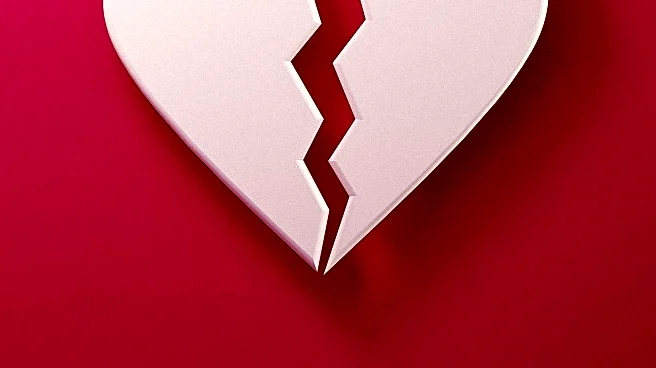What's Happening?
Broken heart syndrome, a condition where heart muscle weakens rapidly after a stressful event, is more common in individuals over 50 and predominantly affects women. However, recent findings from the American Heart Association indicate that men are at a higher
risk of dying from this condition compared to women. The study shows that 11% of men succumb to broken heart syndrome, while the mortality rate for women is 5%. The syndrome can be triggered by emotionally or physically stressful situations, such as the loss of a loved one or major surgery. Experts suggest that social isolation and lack of support systems contribute to the higher mortality rate among men.
Why It's Important?
The study's findings highlight the critical role of social support in managing health conditions like broken heart syndrome. The disparity in mortality rates between men and women suggests that societal factors, such as social isolation, significantly impact health outcomes. This research could influence public health strategies, emphasizing the importance of mental health support and community engagement, particularly for older men. Understanding the emotional and physical triggers of broken heart syndrome can lead to better prevention and treatment approaches, potentially reducing mortality rates and improving quality of life for affected individuals.
What's Next?
Healthcare providers may need to focus on enhancing social support systems for men, particularly those at risk of broken heart syndrome. Public health campaigns could aim to raise awareness about the condition and encourage individuals to seek medical attention for symptoms like chest pain and shortness of breath. Further research may explore the underlying causes of the gender disparity in mortality rates and develop targeted interventions to address these issues. The findings could also prompt discussions on the importance of emotional well-being and its impact on physical health.
















